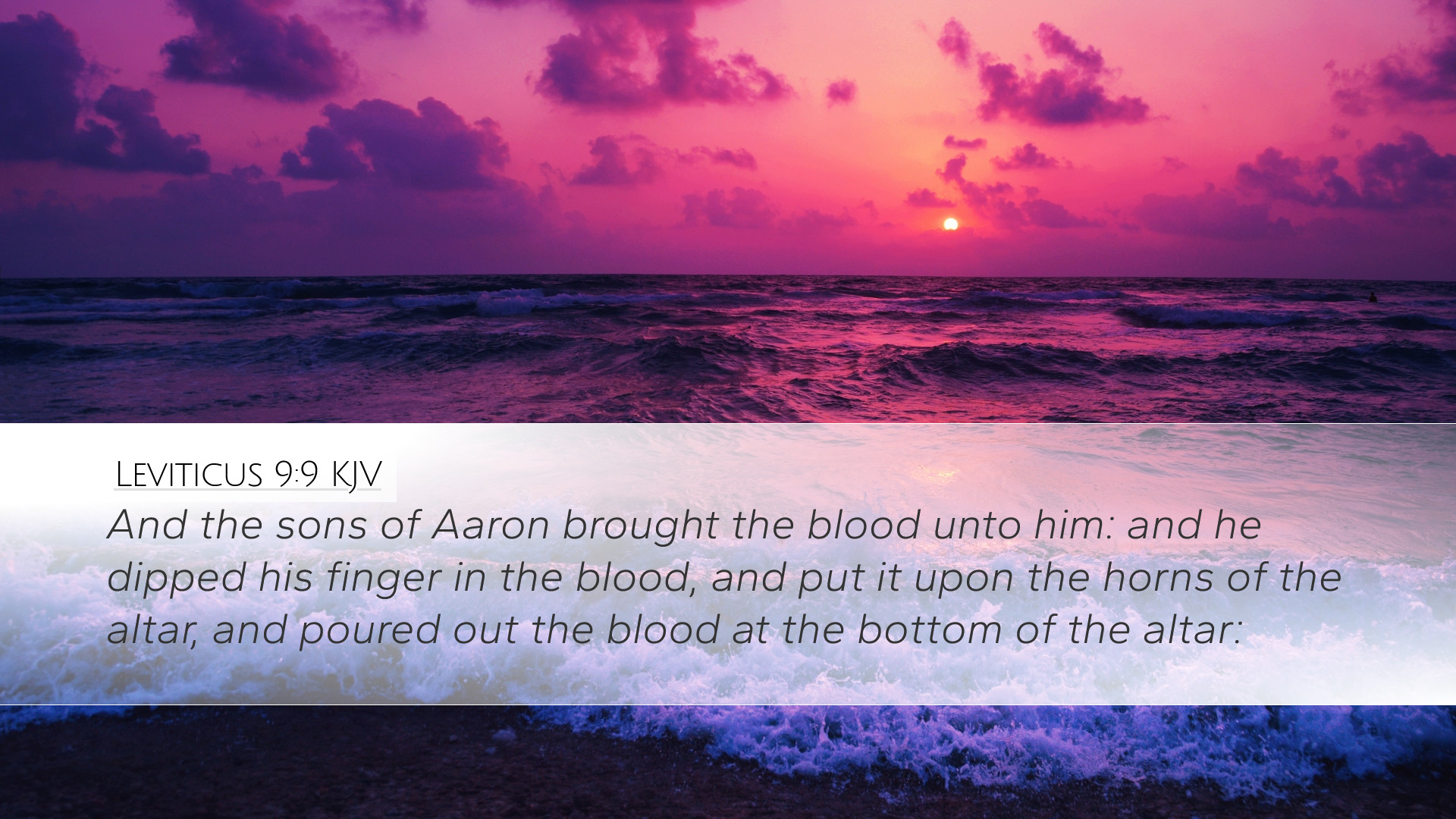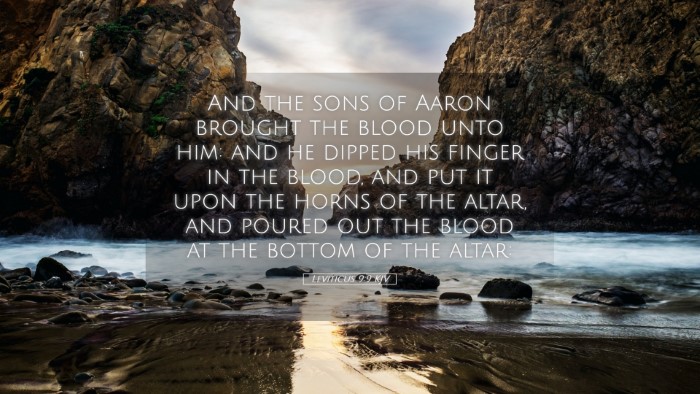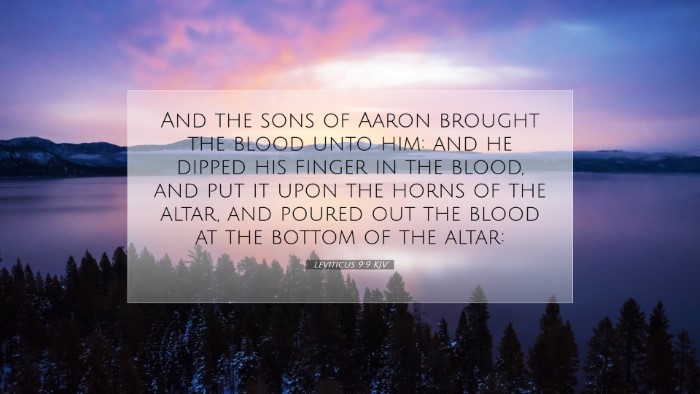Commentary on Leviticus 9:9
Leviticus 9:9 states, "And the sons of Aaron brought the blood unto him: and he dipped his finger in the blood, and put it upon the horns of the altar, and poured out the blood at the bottom of the altar." This verse marks a significant moment in the establishment of the Levitical priesthood and the sacrificial system ordained by God for Israel.
Understanding the Context
The chapter describes the consecration of Aaron and his sons, representing the beginning of their priestly duties. This act not only signifies their roles but also the importance of atonement and the means by which God's people can approach Him.
1. The Role of the Priests
Matthew Henry emphasizes the importance of the priest's role in mediating between God and the Israelites. The act of bringing blood to the altar signifies that priests are not only representatives of the people but also servants of God, engaged in atoning for sin. It is critical to note:
- The Blood Sacrifice: Blood symbolizes life, and its offering signifies the gravity of sin and the cost of atonement.
- The Altar's Function: The altar is a place of sacrifice and signifies a direct connection between God and His people.
2. The Symbolism of Blood
Albert Barnes elaborates on the concept of blood within Hebrew tradition, highlighting that it is not merely a ritualistic practice but laden with spiritual significance:
- Atonement: The blood represents the life that is offered to God in place of the sinner. This foreshadows the ultimate sacrifice of Christ.
- Sanctification: The act of applying blood to the altar signifies the purification and setting apart of the people for God's service.
3. The Act of Dipping Fingers
Adam Clarke offers insights into the ritual act of dipping one’s finger in the blood and applying it to the horns of the altar. This gesture is rich with meaning:
- Personal Engagement: The priest's finger symbolizes personal involvement in the act of atonement. This reflects the personal responsibility of the mediator.
- Divine Acceptance: By anointing the horns, it signifies God’s acceptance of the sacrifice, as these horns represent strength and protection.
Theological Implications
The theological ramifications of Leviticus 9:9 are profound, especially for the New Testament believer:
- Christ as Our High Priest: The writers of the New Testament, particularly in Hebrews, draw parallels between the Levitical priests and Jesus Christ, who fulfills this role perfectly.
- Covenant Relationship: The act of sacrifice lays the groundwork for understanding the covenant relationship between God and His people, emphasizing God's holiness and justice.
Practical Applications
This rich passage encourages several practical applications for the contemporary believer:
- Understanding Sacrifice: Recognizing the cost of sin and the necessity for atonement through Christ’s sacrifice encourages a deeper appreciation for grace.
- Ministry of Mediation: Believers are called to be mediators of reconciliation, as priests of the New Covenant (1 Peter 2:9).
- Worship through Sacrifice: Every act of worship can be seen as a sacrifice, and thus we must approach God with reverence, acknowledging the blood of Christ that speaks a better word than that of Abel (Hebrews 12:24).
Conclusion
Leviticus 9:9 serves as a potent reminder of the seriousness of sin and the wonderful provision God has made through blood atonement. It encapsulates elements of sacrifice, priesthood, and the importance of the altar as a meeting point between God and His people. For pastors, students, theologians, and scholars, this verse challenges us to engage deeply with the themes of holiness, mediation, and grace that flow throughout Scripture.


